Filter by
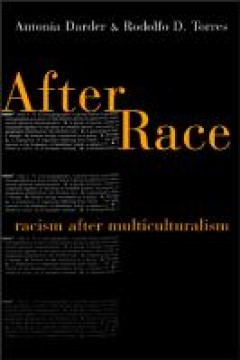
After Race
After Race pushes us beyond the old "race vs. class" debates to delve deeper into the structural conditions that spawn racism. Darder and Torres place the study of racism forthrightly within the context of contemporary capitalism. While agreeing with those who have argued that the concept of "race" does not have biological validity, they go further to insist that the concept also holds little p…
- Edition
- -
- ISBN/ISSN
- 9780814782682
- Collation
- -
- Series Title
- -
- Call Number
- -
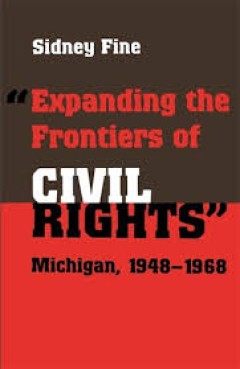
"Expanding the Frontiers of Civil Rights": Michigan, 1948-1968
Although historians have devoted a great deal of attention to the development of federal government policy regarding civil rights in the quarter century following World War II, little attention has been paid to the equally important developments at the state level. Few states underwent a more dramatic transformation with regard to civil rights than Michigan did. In 1948, the Michigan Committee …
- Edition
- -
- ISBN/ISSN
- 9780814343296
- Collation
- -
- Series Title
- -
- Call Number
- -
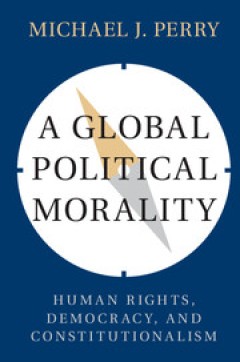
A Global Political Morality Human Rights, Democracy, and Constitutionalism
In A Global Political Morality, Michael J. Perry addresses several related questions in human rights theory, political theory and constitutional theory. He begins by explaining what the term 'human right' means and then elaborates and defends the morality of human rights, which is the first truly global morality in human history. Perry also pursues the implications of the morality of human righ…
- Edition
- -
- ISBN/ISSN
- 9781316665701
- Collation
- -
- Series Title
- -
- Call Number
- -
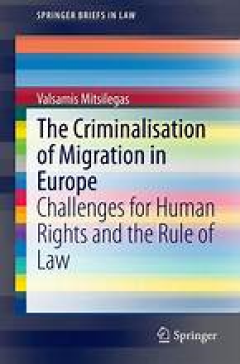
The Criminalisation of Migration in Europe
This is the first monograph providing a comprehensive legal analysis of the criminalisation of migration in Europe. The book puts forward a definition of the criminalisation of migration as the three-fold process whereby migration management takes place via the adoption of substantive criminal law, via recourse to traditional criminal law enforcement mechanisms including surveillance and detent…
- Edition
- 1
- ISBN/ISSN
- 978-3-319-12658-6
- Collation
- IX, 110
- Series Title
- SpringerBriefs in Law
- Call Number
- -

The Illegal Business of Human Trafficking
This book offers a brand-new perspective on human trafficking as an illegal business. It also proposes a new form of networked action: combining the perspectives of academic researchers with those of highly skilled professionals involved in policymaking in this area, this book is a unique contribution and a first step toward a networking paradigm, promoting collaboration in preventing and comba…
- Edition
- 1
- ISBN/ISSN
- 978-3-319-09441-0
- Collation
- XXII, 154, 1 b/w illustrations, 4 illustrations in colour
- Series Title
- The Illegal Business of Human Trafficking
- Call Number
- -

Litigating the Rights of the Child: The UN Convention on the Rights of the Ch…
This book examines the impact of the UN Convention on the Rights of the Child (CRC) on national and international jurisprudence, since its adoption in 1989. It offers state of the art knowledge on the functions, challenges and limitations of the CRC in domestic, regional and international children’s rights litigation. Litigating the Rights of the Child provides insight in the role of the CRC …
- Edition
- -
- ISBN/ISSN
- 978-94-017-9445-9
- Collation
- -
- Series Title
- -
- Call Number
- -
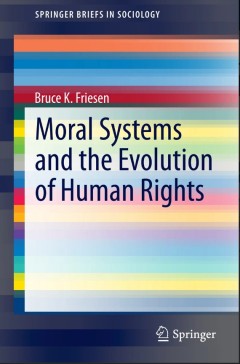
Moral Systems and the Evolution of Human Rights
This volume offers a comprehensible account of the development and evolution of moral systems. It seeks to answer the following questions: If morals are eternal and unchanging, why have the world’s dominant religious moral systems been around for no more than a mere six thousand of the two hundred thousand years of modern human existence? What explains the many and varied moral systems acro…
- Edition
- 1
- ISBN/ISSN
- 978-94-017-9550-0
- Collation
- XVIII, 76
- Series Title
- SpringerBriefs in Sociology
- Call Number
- -
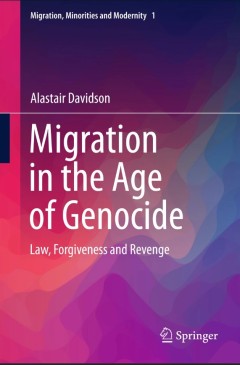
Migration in the Age of Genocide
This book presents a novel proposal for establishing justice and social harmony in the aftermath of genocide. It argues that justice should be determined by the victims of genocide rather than a detached legal system, since such a form of justice is more consistent with a socially grounded ethics, with a democracy that privileges citizen decision-making, and with human rights. The book covers …
- Edition
- 1
- ISBN/ISSN
- 978-3-319-21848-9
- Collation
- XIV, 216
- Series Title
- Migration, Minorities and Modernity
- Call Number
- -
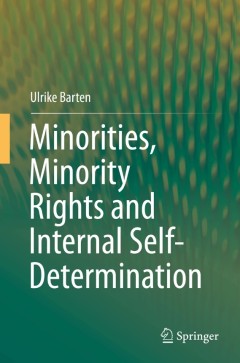
Minorities, Minority Rights and Internal Self-Determination
The book questions the classic idea of self-determination – the right to self-determination is a right of peoples, not of minorities – by examining the content of the right to self-determination and the content of minority rights. Self-determination has four dimensions: the political, the economic, the social and the cultural dimensions. Minorities have minority rights that touch on most as…
- Edition
- 1
- ISBN/ISSN
- 978-3-319-08875-4
- Collation
- XIII, 295
- Series Title
- -
- Call Number
- -
 Computer Science, Information & General Works
Computer Science, Information & General Works  Philosophy & Psychology
Philosophy & Psychology  Religion
Religion  Social Sciences
Social Sciences  Language
Language  Pure Science
Pure Science  Applied Sciences
Applied Sciences  Art & Recreation
Art & Recreation  Literature
Literature  History & Geography
History & Geography